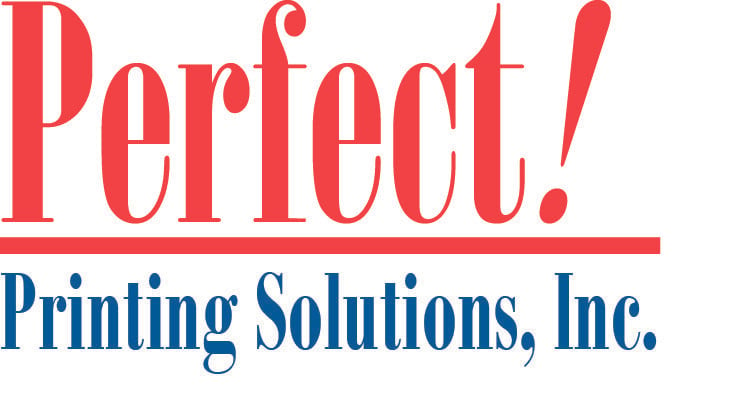Soft Credit Check vs. Hard Credit Check: What’s the Difference?
August 1, 2021

A credit inquiry—also referred to as a credit check or credit pull—is a record of when a person or organization reviewed one of your credit reports. Credit inquiries typically stay on your credit reports for about two years, and hard inquiries can impact your credit score.
What’s the Difference Between a Soft Credit Check and a Hard Credit Check?
The main differences between soft and hard inquiries are what causes the inquiry and how they can impact your credit score.
Hard inquiries are generally triggered when you apply for a new line of credit, while soft inquiries often result for other reasons. Soft pulls never impact your credit score, while hard inquiries can hurt your credit score.
For example, when you request a copy of your own credit report, the credit bureau only includes a soft credit inquiry. But when you apply for a credit card or personal loan, the bank pulling your report will generate a hard credit pull. Most creditors won’t even see the soft inquiries on your credit reports, but they can see the hard inquiries.
Both soft and hard inquiries can stay on your credit reports for two years. It’s also common to see different inquiries on different credit reports. For example, if you apply for a car loan and the lender only checks your Equifax credit report, the inquiry is only added to Equifax and won’t appear on Experian or TransUnion reports.
Examples of Soft Credit Inquiries
Soft inquiries come from credit checks that aren’t related to applying for a new credit account. These can happen for a variety of reasons.
Checking your rate at LendingClub
You can check your rate from LendingClub Bank for free to see your potential loan offers before you apply. You’ll then have a good idea of whether you can qualify for a loan and the potential loan terms you’ll receive without impacting your credit score.
Applying for prequalification offers
Other lenders and credit card issuers may also let you submit basic information to get prequalified for a loan or credit card. These pre-qualifications usually only result in a soft inquiry.
Checking your own credit reports
Using a credit monitoring service or requesting a copy of one of your own credit reports always results in a soft inquiry. This is why checking your own credit does not hurt your credit score.
Prescreened offers of credit or insurance
Credit reporting agencies offer prescreening and marketing services to other companies. For example, financial institutions, credit card companies, and insurance companies set criteria, such as credit score range and location, and a major credit bureau will create lists of prescreened consumers who match.
The creditor or insurance company can then extend a firm offer of credit or insurance to the potential customers—think, the credit card offers you get in the mail. If you receive a prescreened offer of credit or insurance, you’ll likely see a soft inquiry on one of your credit reports as well.
Your current creditors check your credit reports
Creditors also regularly check current customers’ credit reports to monitor their creditworthiness and manage their accounts. For example, your credit card issuer might decide to increase your card’s credit limit if you have a good payment history. Alternatively, the issuer can lower your credit limit if it sees you’re falling behind on other bills.
Prospective or current employers checking your credit
Current and potential employers may also check your credit reports as part of a background check, but they need to have your written permission first. Employers don’t get credit scores with the credit reports they receive, and the reports don’t have certain information, like your date of birth. Some states also limit or ban the use of credit checks for employment purposes.
Applications for rentals, phones, and utilities (sometimes)
You’ll often need to agree to a credit check when you apply to rent a home or apartment, open a new phone plan, or start a utility or telecom service. The credit checks often result in soft inquiries. However, you may want to ask the provider, as sometimes it will be a hard inquiry.
Examples of Hard Credit Inquiries
Hard inquiries typically result from applying for a loan or line of credit. Credit card issuers and lenders that let you prequalify for offers may perform a hard credit check when you move forward with an application. Some lenders don’t let you check your offers with a soft inquiry. You’ll have to decide whether it’s worth applying and allowing a hard inquiry to be reflected on your credit report—which can stay on your credit report even if your application is denied.
How Do Credit Inquiries Affect My Credit Score?
Hard inquiries can negatively impact your credit score, but it’s often a minor scoring factor. Ultimately, the impact of a new hard inquiry will depend on your overall credit profile.
If you’re new to credit or have a lot of hard inquiries during a short period of time, your score will likely be more impacted by a hard inquiry than someone with established credit and no other inquiries. Inquiries can stay on your credit reports for up to two years. However, some credit scoring models only consider hard inquiries from the previous 12 months.
How Hard Inquiries From Rate Shopping Impact Your Credit Score
A hard inquiry could hurt your credit score because someone who is applying for credit may have more difficulty paying their bills later. However, people that create credit scoring models also know that consumers frequently (and wisely) shop around for the best loan offers.
The rules can vary depending on the type of credit scores. For example, a scoring model may consider multiple hard inquiries for a new auto loan that occur within a 14-day period as a single hard inquiry for scoring purposes. After all, consumers may apply for multiple loans to compare offers, but will often only take out one loan to purchase their vehicle.
Ways to Reduce the Impact of Hard Inquiries
You don’t need to worry about hard inquiries too much as they’re minor scoring factors in your overall credit score. Still, it’s best to avoid having too many.
1. Check your loan offers before applying.
Check your rate and loan offers with a soft credit pull to get an idea of your loan offer before you apply. This lets you rule out some lenders before you apply. Keep in mind, an offer isn’t a guarantee you’ll be able to get a loan—especially if your income or credit drastically changes. But it can help you avoid submitting loan applications that likely won’t get approved or work for your financial situation.
2. Be strategic about applications.
When you’re ready to apply for a loan, shopping for offers can help you lock in the best rate. But be aware of how each application could lead to another hard inquiry. You may want to submit your applications within a short period to limit the impact on your credit scores.
3. Focus on improving your credit.
While a hard inquiry might hurt your credit scores, it’s a minor scoring factor. You could focus on major factors, such as building a long history of on-time payments and only using a small portion of your available revolving credit balances. Once you have a good or excellent score, a small and temporary drop might not matter as much.
Hard Credit Check vs. Soft Credit Check FAQs
Here are answers to a few additional common questions people have about hard and soft credit checks.
Does a soft credit check affect credit score?
A soft credit check will not impact your credit score. Generally, soft credit inquiries are only included in the credit reports that consumers receive when they check their own credit.
What does a hard credit check show?
A hard credit check or inquiry is a record of when an organization checked one of your credit reports in response to an application. The hard inquiry can stay in your credit history for two years, even if you don’t take out a new credit line or loan.
Why does a hard credit check hurt your credit score?
A hard inquiry may hurt your credit score because it indicates you’re looking for a new loan or line of credit. Taking on more debt could make paying your bills more difficult, which is why your score could drop.
Blog Provided by: https://blog.lendingclub.com/






























